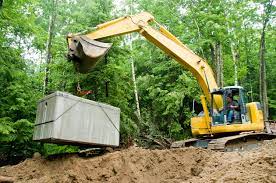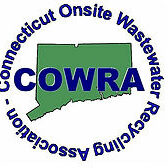
COWRA began as an out-growth of research/extension activities by the University of Connecticut, Storrs Agricultural Experiment Station and its Cooperative Extension System during the mid-1960’s. John J. Kolega, Ph.D. agricultural engineer with the UConn Natural Resources Management and Engineering Department was instrumental in helping those in the trade bridge the gap from the “lone voice of the individual system installer/repairer/pumper” to the “strength in numbers and organization” that the CSDA, now COWRA, is today. Very much involved with Dr. Kolega in helping to bring about the birth of the CSDA at that time was the late Sidney F. Holbrook. Without Sid’s insight during the Association’s infancy, the CSDA would not be the structure that it is today. A third party to the CSDA’s birth was Gregory Curtis, now retired, of the UConn Middlesex Cooperative Extension System at Haddam. It was in Haddam where early organizational meetings were held that led to the formation of the CSDA. We are now known as Connecticut Onsite Waste Recycling Association or “COWRA.”
The objectives developed for the CSDA (COWRA) in 1966 have proven themselves for close to a quarter of a century and are still applicable today. Among these are:
- Attain better disposal facilities for sewage wastes.
- Standardize rules and regulations pertaining to design, manufacture, installation and servicing of sewage disposal systems.
- Provide for the discussion of problems and formulate solutions pertaining to the design, manufacture and installation of systems for the disposal of sewage washes, etc. (See Bylaws.)
Not the least of these objectives are Sections 6 and 8 from Article II of CSDA’s by laws. CSDA apprises the public of problems concerning the effective disposal of wastes (our past frequent newspaper releases and publication of the Guide to Septic Systems). It compiles and disseminates specific scientific and state code information to members (done through the CSDA Newsletter). CSDA also channels trade publications, pumper and governmental journals, and Small Flows Quarterly to its members.
About forty percent of Connecticut’s citizenry are dependent on on-site sewage disposal systems. Like the water that we drink from our tap, our profession is an important one to the average user but generally unappreciated, until there is a household wastewater discharge problem. By contrast, we have been thinking, planning and implementing industry-wide change for over fifty years.

COWRA
Connecticut Onsite Wastewater Recycling Association
PO Box 116
East Hampton, CT 06424
860-267-1057 | 860-638-8188
Stewards of Connecticut’s Land and Water
